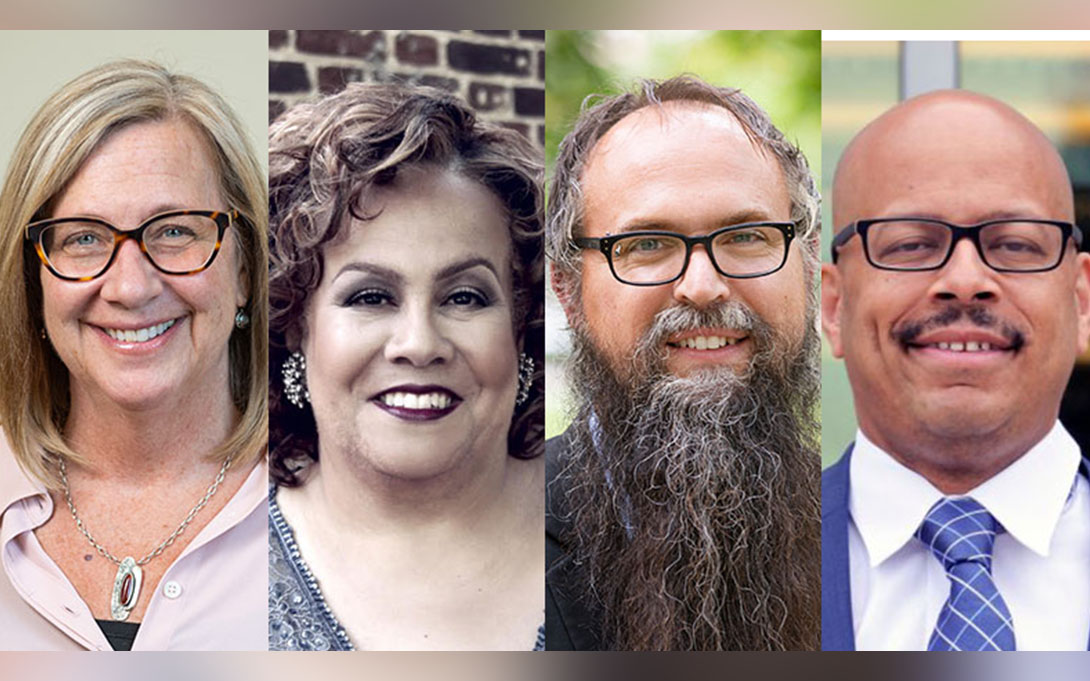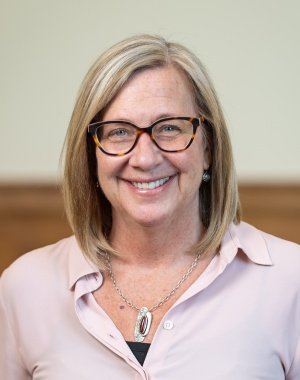
Four U-M faculty members have been named University Diversity and Social Transformation Professors for their exceptional contributions to diversity, equity and inclusion through research, teaching and service.
The Board of Regents approved the appointments of Paula M. Lantz, Antoinette Louise Toppin, Kyle P. Whyte and Alford A. Young Jr. on July 20. The appointments take effect Aug. 28.
“These colleagues demonstrate dedication to forging a university and society that are vibrant, multicultural, just and inclusive,” said Laurie McCauley, provost and executive vice president for academic affairs.
“This is evident in each of their areas of focus, but also in their methodologies and collaborative approaches. I am thrilled to see our values embodied through these scholars’ teaching, research and service endeavors.”
Sponsored by the Office of the Provost and jointly administered by the National Center for Institutional Diversity and the Office of Diversity, Equity and Inclusion, the professorship pays both tribute to and builds upon the university’s legacy of faculty commitment to, and achievement in, diversity, equity and inclusion.
Thirty-one U-M faculty members have been named recipients since the UDSTPs were established in 2019.
Each recipient was nominated by the dean of their school or college and recommended to the provost by a faculty committee.
“This year’s appointments demonstrate the exceptional expertise, commitment and leadership of our faculty at the University of Michigan,” said Tabbye Chavous, vice provost for equity and inclusion, and chief diversity officer.
“Across their careers, through their scholarship and research, teaching and mentoring, and engagement and leadership, each member of this cohort has made meaningful and long-lasting impacts at our university, in their fields and disciplines, and in our broader society.”
The recipients will retain the title throughout their appointment at U-M and will receive an annual stipend of $20,000 for their first five years as a UDSTP to support their scholarly and professional work. They also will receive special faculty fellow status at the NCID and will spend at least one semester as a faculty fellow-in-residence.
“The professorship positions the university as a leader in higher education, exemplifying its commitment to diversity, equity and inclusion,” said NCID Director Elizabeth R. Cole, who was named a UDSTP in 2022.
She said by recognizing these faculty members, the professorship fosters an inclusive campus culture and promotes positive social transformation.
About the recipients
Paula M. Lantz is the James B. Hudak Professor of Health Policy, professor of public policy in the Gerald R. Ford School of Public Policy, and professor of health management and policy in the School of Public Health. She is a nationally renowned social demographer and social epidemiologist who studies the role of public policy in improving population health and reducing social disparities in health.
Antoinette Louise Toppin is a professor of music in the School of Music, Theatre & Dance. She is internationally recognized as the leading authority in promoting DEI with music and has engaged SMTD faculty around racial justice in music by hosting international conferences at U-M, which have recruited students and faculty to this scholarly and creative work.
Kyle P. Whyte is the George Willis Pack Professor and professor of environment and sustainability in the School for Environment and Sustainability, and professor of philosophy in LSA. He is nationally and internationally respected as a leader in the advancement of Indigenous diversity, equity, inclusion and justice in climate change, climate science and higher education.
Alford A. Young Jr. is an Arthur F. Thurnau Professor, the Edgar G. Epps Collegiate Professor of Sociology, professor of sociology and of Afroamerican and African studies in LSA, and professor of public policy in the Ford School. Both a sociologist of Black men in America and a historian of Black sociology, his contributions have opened new perspectives for Black America in all its diversity, with a searching inquiry and nurtures further research in his subfield, particularly by other scholars of color.

